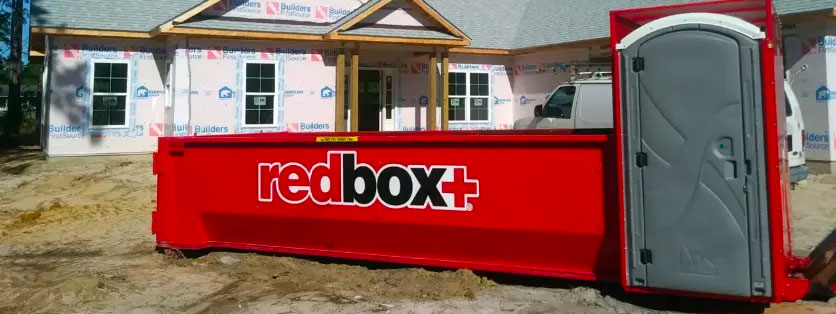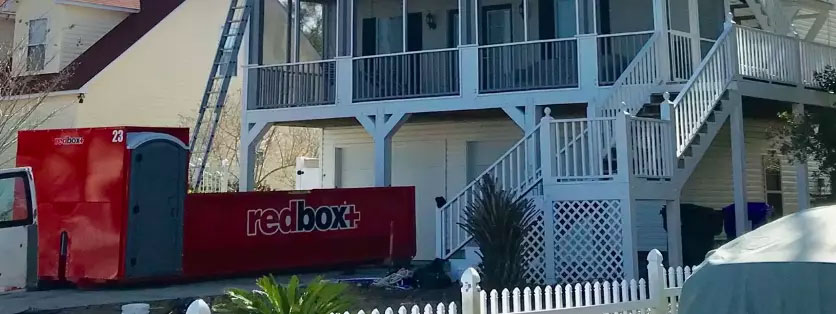Common Dumpster Fees
The key to avoiding extra dumpster fees is to know and understand your rental agreement. By giving the rental company an accurate description of what you need disposal of and the amount you expect it to be, they can give you an accurate quote on what it will cost. The extra fees occur when you make changes and overfill the dumpster, let it go over the weight planned, or keep it longer than agreed upon.

Disposal Fees
Some materials require extra handling or may not be accepted by the landfill.
- On average, disposal fees may range from $15 – $100 per item.
- Materials that end in a disposal fee may include appliances, electronics, or large waste items like mattresses. Also, there may be a disposal fee if you include other waste in a specialized container. For example, don’t throw extra household waste in a dumpster rented for shingles. Hazardous waste will also not be accepted at a landfill.
- It’s easy to avoid disposal fees. When you set up your dumpster rental, be sure to mention everything you are looking to dispose of, and don’t put anything that is not discussed ahead of time in the dumpster. If you have questions, call the dumpster rental company.
Trip Fees
Trip fees are charged when the dumpster rental company is unable to drop off or pick up the dumpster due to an obstacle.
- The average cost of a trip fee is $150
- Avoid trip fees by giving delivery directions to make sure the dumpster is placed where needed. Also make sure the path and location is clear of anything that could block placement of the dumpster, and make sure there is enough height clearance (around 18’ high).
Overage Charges
An overage charge may occur when the waste weight included in your rental agreement is exceeded.
- The average cost of an overage charge is $45 – $175 per ton.
- You can avoid overage charges by choosing the right dumpster size for your project. We can help you select the right size for the job when we know what kind of debris you are disposing of and how much there will be. If what you need is in between dumpster sizes, you may want to factor in an overage fee cost. If weather may play a factor, be prepared to put a tarp over the dumpster – soaking your debris with rainwater can make it weigh remarkably more than you expected.

Overloading Fee
An overloading fee, sometimes called an overfill fee, occurs when the debris in the dumpster overflows or hangs over the sides of the dumpster. In this case, the dumpster cannot be safely transported to the landfill.
- An overloading fee may cost up to $150 and may require rental of another dumpster for proper disposal.
- Avoid overloading fees by making sure you are familiar with the fill line of the dumpster. Place larger, bulky items at the bottom, and break down items if needed so they take up less space. Load debris evenly in the dumpster.
Extension Fees
An extension fee is necessary if the dumpster is needed for longer than the agreement stated.
- On average an extension fee may cost between $10 – $35 per day.
- Extension fees can be avoided by determining how long you will need the dumpster when you are making the rental agreement, and being prepared when the dumpster arrives. However, things happen, and if you should need more time the rental can be extended for a low rate by letting your dumpster rental company know. If you will not need an extension, make sure you contact the rental company before the end of the agreement to schedule your pick up.
Cancellation Fee
A cancellation fee may be charged, depending on how far in advance you let the dumpster rental company know that you no longer need the dumpster.
- The average cancellation fee may be $25 – $150, depending on notice.
- If you need to cancel the delivery of a dumpster, let the dumpster company know as soon as possible. The closer you are to the agreed upon delivery time, the higher the fee may be.

Tow Fee
A tow fee may be required if the dumpster sinks too much as it is filled and must be pulled out.
- This cost varies by location.
- Avoid tow fees by working with your dumpster rental company to determine the best location for the dumpster.
Wait Fee
A wait fee may be charged if the driver must wait while dropping off or picking up the dumpster. Reasons for waiting would include needing obstacles to be moved, debris off-loading from an overfilled dumpster, or finishing loading the dumpster.
- This is an hourly fee that ranges by location.
- Avoid wait fees by being prepared for drop off and pick up of the dumpster and filling the dumpster properly.
Damage Fee
Damage to the dumpster includes anything that is beyond regular wear and tear and includes vandalism.
- A damage fee for damage to the dumpster depends on the damage that must be repaired but may cost up to $6,000.
- Monitor the use of the dumpster while it is on your property. The dumpster is not to be moved by anyone other than the dumpster rental company, as the dumpster may be damaged in the process
Frequently Asked Questions
What is the maximum fee that can be charged?
Dumpster Damage and Dumpster Theft.
When are dumpster fees charged?
When the fee is charged can vary by what kind of charge it is. A cancellation fee would be charged at the time of cancellation. Overage fees or disposal fees would be charged after disposal. Other fees may be charged at the time they are incurred.
What is mixed debris?
Mixed debris occurs when anything else is added to the dumpster other than what was expected. Adding shingles to a yard waste dumpster would be mixed debris. Adding household garbage to a construction dumpster would be mixed debris. Discuss with your rental company what you will need to dispose of and stick with it.
How much weight does rain add to a dumpster?
Significant amounts of rain can impact the weight of your dumpster. Things like gravel, leaves, and garbage can absorb large amounts of water. 150 lbs of leaves that are dry could weigh as much as 550 lbs when wet. If significant precipitation is in the forecast, be prepared to cover the dumpster when it is not in use. Some rental companies will have a tarp available on request.
Is it better to rent a bigger dumpster than I think I need?
A good rule to follow is renting a dumpster slightly larger than what you think you need. If you overfill your dumpster or go over weight, you may incur fees and need to rent a second dumpster to dispose of the remaining debris. It would be more cost effective to rent a dumpster that is slightly larger and gives you a higher weight limit and more space.
Conclusion
The best way to avoid additional dumpster fees, is to give your rental company all of the information possible about what you plan to dispose of. This allows them to provide you with the right size roll-off dumpster. Also, review your rental agreement so you understand it and don’t incur any charges for violating the agreement. Finally, be prepared when your dumpster is being dropped off and picked up so it’s a smooth and efficient process for everyone./p>